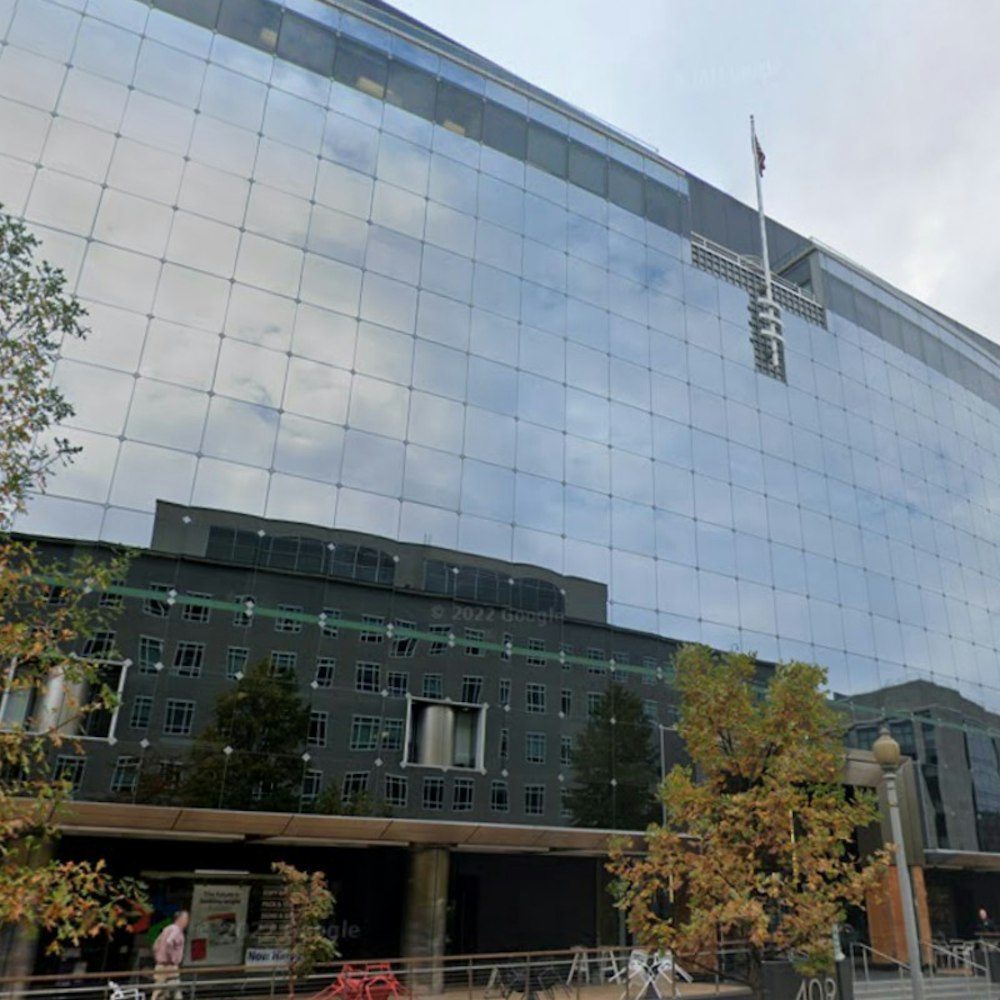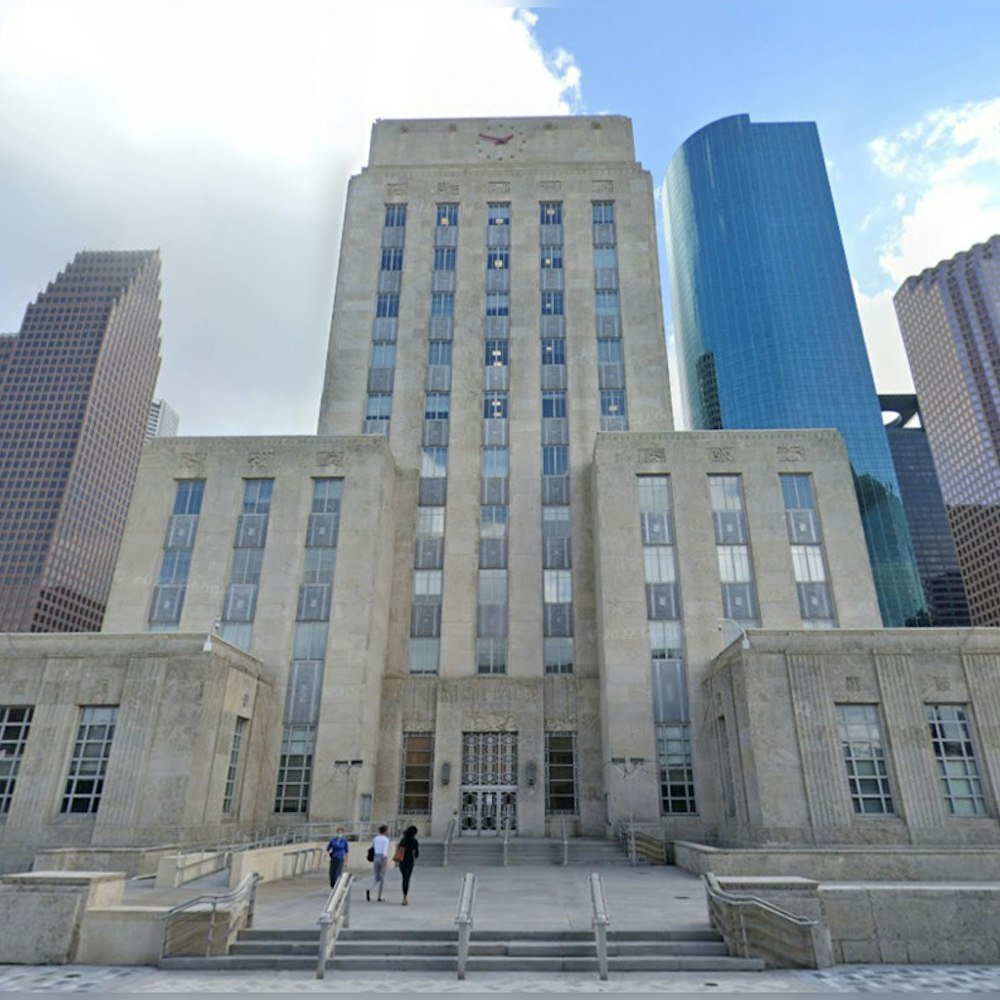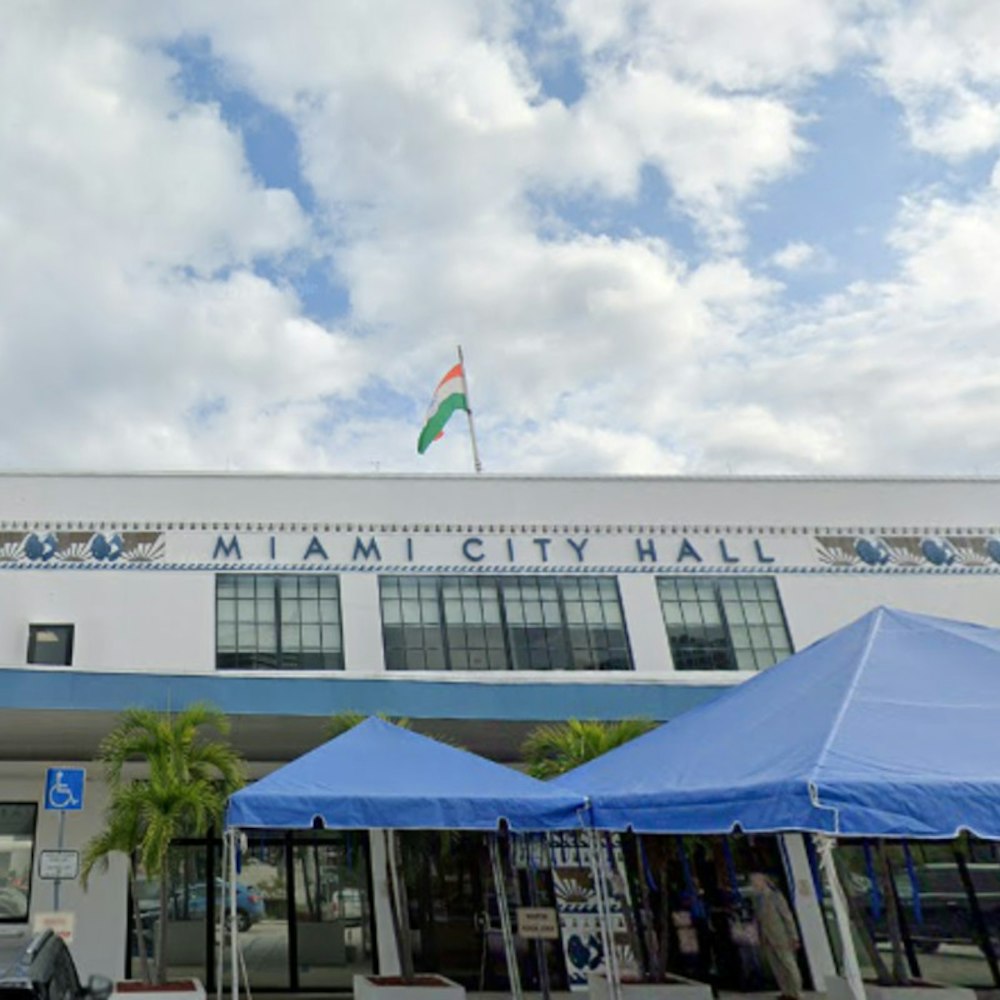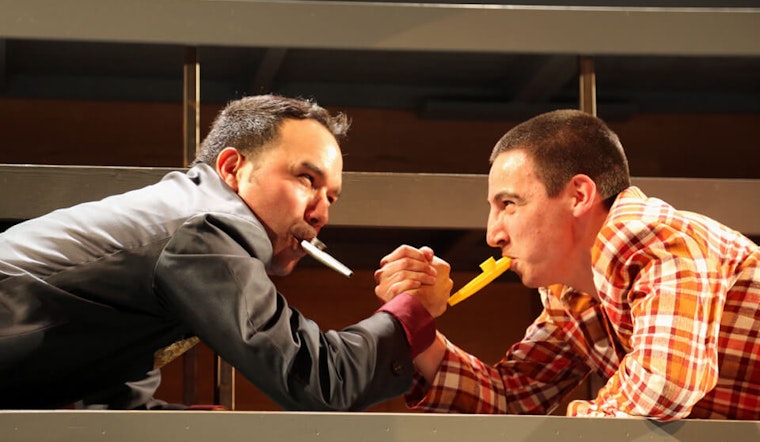
While it may not be as visible as its neighbors — such as A.C.T. in its eye-popping new home at the Strand Theater, or SHN in the historic Golden Gate and Orpheum theaters — Cutting Ball Theater has been challenging audiences with live experimental plays in and around the Tenderloin since 1999.
With the neighborhood's theater revival in full swing and Cutting Ball's 17th season just kicking off, we sat down with the company's co-founder and artistic director, Paige Rogers, to learn more about their history in the Tenderloin.
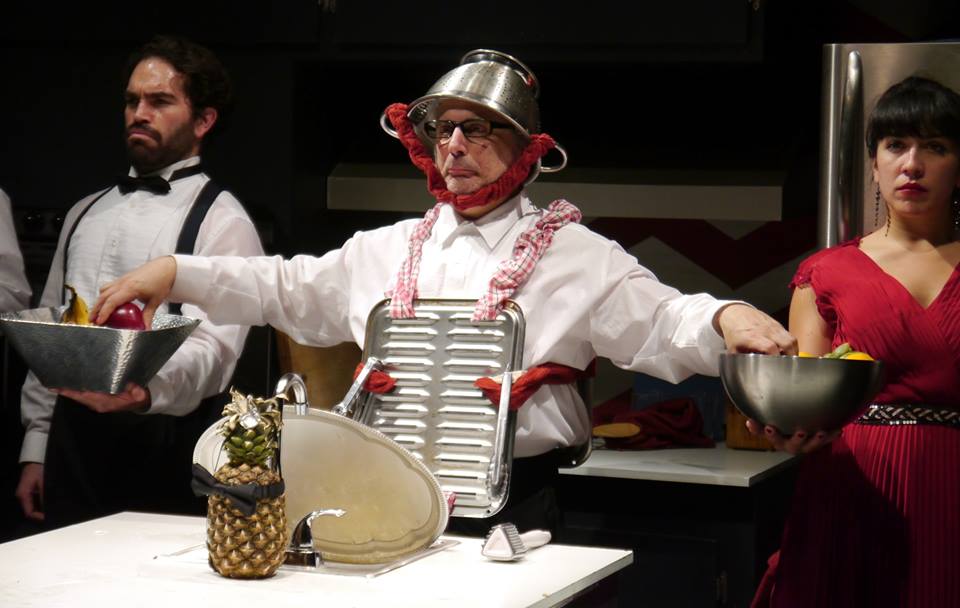 A scene from the play Ubu Roi, produced last year by Cutting Ball Theater.
A scene from the play Ubu Roi, produced last year by Cutting Ball Theater.
Like many local artists and business owners, Rogers and her husband and Cutting Ball co-founder Rob Melrose were drawn to San Francisco for its open-mindedness. After spending ten months traveling Europe to see masterful translations of Shakespearean plays, they wanted to start a theater company that was as bold as those they'd seen abroad, Rogers said.
"In America, you have to call it experimental. But in Europe, that's just a theater," she explained.
Although the company debuted in San Francisco at time when experimental theater was fizzling out, they quickly found their niche with the annual SF Fringe Festival at the Exit Theater — which later invited Cutting Ball to be a permanent fixture as the theater-in-residence, Rogers said.
What sets Cutting Ball apart from other theater companies in the area is its specialty in plays that focus on poetic — not realistic — truths. Whether their plays are original new works or new translations of 15th century classics, they're much less literal than shows you'd see elsewhere, Rogers said, a fact which can be difficult for some to swallow.
While Cutting Ball Theater has been in the neighborhood for nearly 20 years, they haven't always felt connected to the community that surrounds them, Rogers also admitted.
But that all changed in 2012 when they commissioned the piece Tenderloin. The piece's writer and director interviewed everyone from people on the street to residents, social workers, local business owners and the police captain to develop a theatrical documentary on the community.
"We created this piece that was very, very well-received by the community. But more than that, it really changed us," Rogers said, noting that it gave her a deeper understanding of how close the Tenderloin community is and the feeling that they too were a part of it.
But producing plays that are "very San Francisco" and speak to themes relevant to the diverse neighborhood has always been a focus. "Cutting Ball in general tries to reflect where we are, as a Bay Area in general and certainly in the Tenderloin," Rogers said.
In 2013, Cutting Ball produced the play Sidewinders, a reimagining of the famous play Waiting for Godot, in which two people are waiting for someone named Godot. In Cutting Ball's version, two transgender people are waiting for their genders.
Last season featured four plays centered on the theme of injustice. And one of those shows, Superheroes, was loosely based on a local controversy surrounding the crack-cocaine epidemic.
"It reflected what happened in the '80s out on Turk and Taylor, and what's still happening today," Rogers said.
This season focuses on another universal concept: dreams.
The first show — running now through Nov. 1st — is Life Is A Dream. The play features a paranoid king who has a premonition and imprisons his son. Of course, the prince escapes, but struggles with his newly found freedom. Cutting Ball's take on the classic replaces swords with kazoos, and all of the action takes place on and under a set bleachers, Rogers said.
Come February, the company will launch Ondine, which Rogers described as a brand new play that parallels the introduction to The Little Mermaid. In this story, a sea creature, Ondine, fears that the knight she fell in love with has betrayed her and curses him to die the next time he falls asleep. When he returns to apologize and Odine regrets her actions, together they struggle to remain awake and fall into a dream-like state.
Finally, the series wraps up with A Dreamplay, which was the first play in history to mirror a dream, leading the way for modern drama and experimentalism, Rogers said.
The current schedule and tickets are available here. If you'd prefer to snag a last-minute deal, Cutting Ball Theater also offers pay-what-you-can tickets at the door for anyone who lives or works in the neighborhood — as long as extra seats are available.




